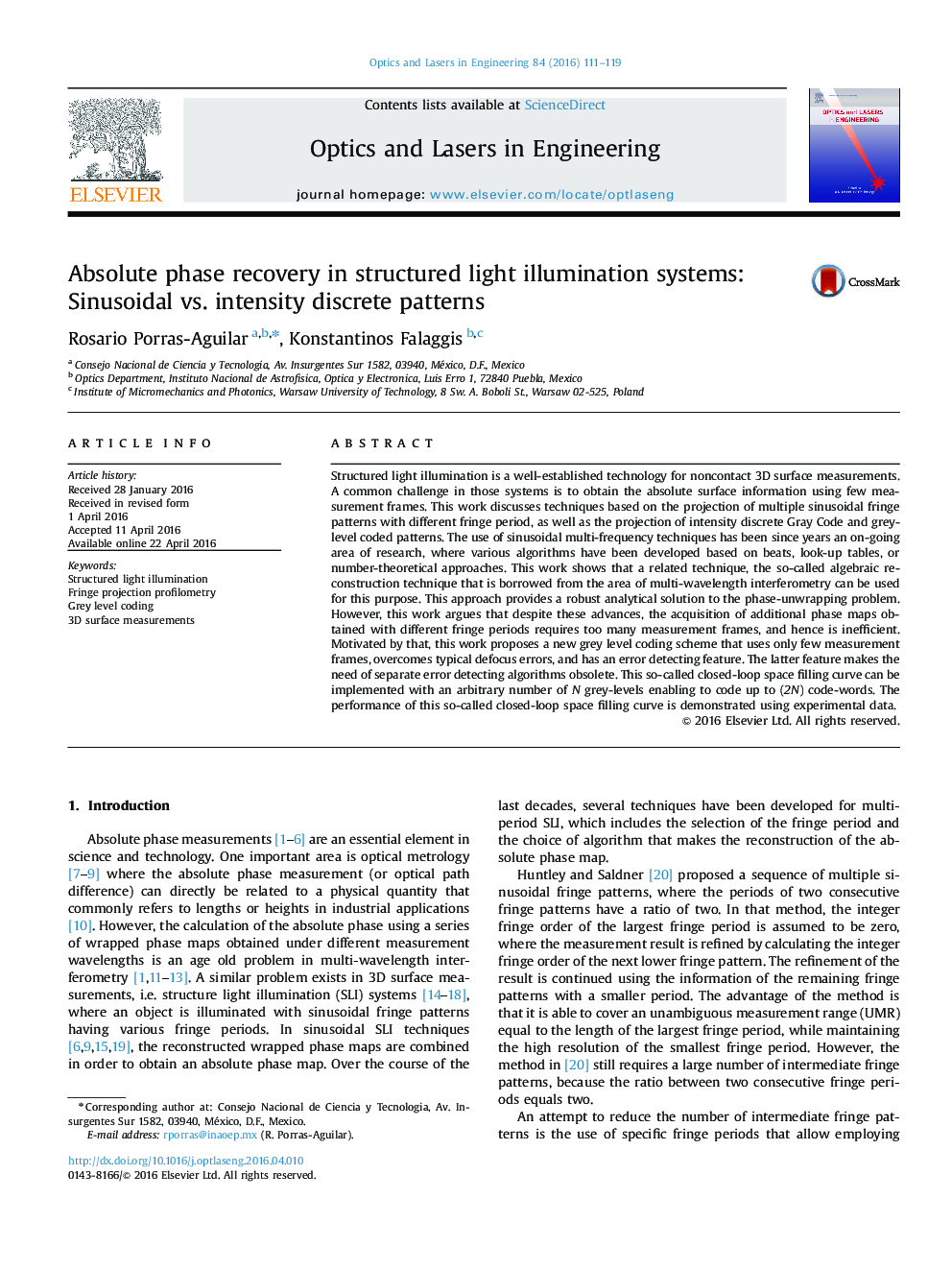| Article ID | Journal | Published Year | Pages | File Type |
|---|---|---|---|---|
| 735059 | Optics and Lasers in Engineering | 2016 | 9 Pages |
•Discussion on sinusoidal fringe projection, Gray code and grey-level coded patterns.•The algebraic reconstruction technique provides analytical phase-unwrapping solution.•Sinusoidal fringe projection techniques require too many measurement frames.•A new grey level coding scheme is proposed using only 2-4 additional frames.•This new grey level coding can be employed with an arbitrary number of N grey-levels.•The error-detecting property of this technique allows excluding erroneous pixels.
Structured light illumination is a well-established technology for noncontact 3D surface measurements. A common challenge in those systems is to obtain the absolute surface information using few measurement frames. This work discusses techniques based on the projection of multiple sinusoidal fringe patterns with different fringe period, as well as the projection of intensity discrete Gray Code and grey-level coded patterns. The use of sinusoidal multi-frequency techniques has been since years an on-going area of research, where various algorithms have been developed based on beats, look-up tables, or number-theoretical approaches. This work shows that a related technique, the so-called algebraic reconstruction technique that is borrowed from the area of multi-wavelength interferometry can be used for this purpose. This approach provides a robust analytical solution to the phase-unwrapping problem. However, this work argues that despite these advances, the acquisition of additional phase maps obtained with different fringe periods requires too many measurement frames, and hence is inefficient. Motivated by that, this work proposes a new grey level coding scheme that uses only few measurement frames, overcomes typical defocus errors, and has an error detecting feature. The latter feature makes the need of separate error detecting algorithms obsolete. This so-called closed-loop space filling curve can be implemented with an arbitrary number of N grey-levels enabling to code up to (2N) code-words. The performance of this so-called closed-loop space filling curve is demonstrated using experimental data.
